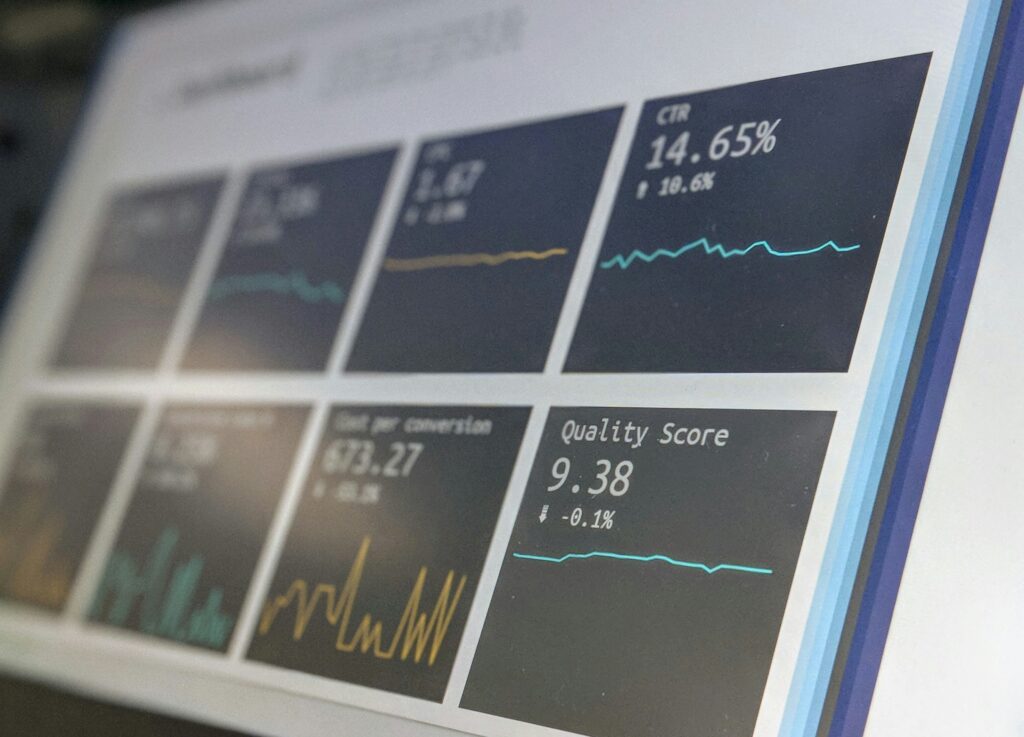Knowledge Organization and Dissemination
In a world that is increasingly globalized and interconnected, consumers and businesses alike have come to inhabit a marketplace of goods and services that have also become increasingly globalized and technology-driven. In this modern-day context, marketing as an academic field and commercial practice has become all the more pivotal for businesses and companies. And as a corollary of this importance of marketing for businesses, there is an evident need not only for multilingual marketing but also for the translation that enables this multilingual marketing. In a thriving and often chaotic modernity, the translator in the field of marketing has never been more important.
The last few decades have seen marketing become a vast and sprawling field of academic research and practical application. This translator’s guide has arisen in response to this growing importance and its numbered sections are meant to introduce the Spanish translator to the field. Following a description of how knowledge in the field is disseminated and organized, together with the longer descriptions of two information-rich resources, this guide offers a thirty-source annotated bibliography in the translator’s working languages, Spanish and English. This bibliography has monolingual sections in each of the translator’s languages together with a bilingual section.
It is an annotated bibliography that runs the gamut of academic and practical resources that could be useful for the Spanish translator doing research in the field. Ultimately, this guide’s purpose is to introduce the translator to the scope and variety of the field’s information and provide a form of orientation within that field, enabling the first steps toward field-specific autonomy as a researcher-cum-translator.
B2B and B2C Marketing
A process that exists within the larger field of commerce and the exchange of goods and services, marketing can be divided into two overarching categories, business-to-business marketing (B2B) and business-to-consumer marketing (B2C). Generally defined, B2B marketing encompasses the strategies, practices, or processes of exchanging, promoting, or selling goods and services to another business or corporate entity. It has four categories of possible end-consumers for these goods and services:
- Companies or corporate entities that use the products being marketed, such as a pharmaceutical company that receives chemicals and ingredients from a chemical supplier
- Government agencies or institutions such as the U.S. Department of Defense, which receives weapons and ammunition from a weapons manufacturer
- Public institutions (such as schools or hospitals) that receive medical supplies, operative technology, and instruments from a medical supplier
- Retailers or brokers that receive supplies from a wholesaler or manufacturer for their later sale to the general public (in this context usually a human customer rather than an entity)
B2C marketing, on the other hand, can be generally defined as the strategies, practices, or processes of exchanging, promoting, or selling goods and services directly to an end-consumer. This end-consumer is usually an individual or series of individuals. Some of the businesses engaged in B2C marketing are:
- Large retailers, franchises, and stores, both physical and digital
- Shops, boutiques, and agencies
- Family-run businesses, sole proprietorships, and freelancers, such as clinical psychologists and street-market vendors
It bears mentioning, first of all, that knowledge in the field of marketing can be either about marketing as a field or about the strategies, actions, and products of the marketing itself. These two kinds of marketing knowledge, the first more abstract and the second more practical, are both represented in the sources to follow. On the whole, knowledge in the field of marketing is disseminated among a series of physical and digital primary, secondary, and tertiary sources. These sources include books, magazines, journals, white papers, journalism, newspaper columns, articles (both digital and physical), blogs, and videos, as well as academic research in the field disseminated in journal articles, scholarly publications, and books.
Sources in and About the Field of Marketing
The sources in the field can be further divided according to the initial division into the abstract and practical forms of marketing knowledge. Sources about the field of marketing as such include the following:
- Primary sources, such first-hand accounts and documents on marketing methods, strategies, and techniques from marketers themselves, as well as managers, related employees, and other chroniclers with first-person experience of marketing.
- Secondary sources are more numerous, including blog and journal articles, essays, white papers, advertising, books and e-books alike, and general print and digital media related the field of marketing.
- Tertiary sources, such as data analyses, websites, industry reports, marketing dictionaries, compendia, and databases, as well as analyses or secondary reports of marketing-related case studies.
Sources about the specific processes in the field of marketing or its practical applications in the context of a business, company, or consumer include the following:
- Primary sources, such as company employees and managers in the context of a specific product or service, together with their experiences and first-hand documentation.
- Secondary sources, such as company websites, blogs, portfolios, product catalogues, brochures, procedural manuals, terminology databases, and in-store digital or print advertising and general signage.
- Tertiary sources, such as product or service analyses, sales reports, company or product reviews, white papers, campaign- or product-centered databases and similar documentation. These tertiary sources also include reports, analyses, and terminology from close competitors of the product or company in question.

Two Key Sources
Marketing Dictionary (Monash Business School)
This is an excellent dictionary of hundreds of marketing terms, concepts, and jargon, organized alphabetically with a browse-by-letter feature and global search bar for easy navigation. Some of the terms included are data analysis and deceptive advertising, bait pricing and bartering, and target market and telemarketing. Its academic rigor lends the dictionary an authority that is bolstered by its claim of top-ten research status in the field of business administration and an international reputation (the university is based in Melbourne, Australia). The resource-hungry translator in the field of marketing can be satisfied with this foundation of terminology, which provides the twofold value of authority and extensiveness.
Digital Marketing Resources (Digital Marketing Institute)
This is a powerful all-in-one marketing resource for both beginners and experts, and the page included as the primary resource is the nexus of dozens of other pages, features, and media in the area of digital marketing. The organization itself, the Digital Marketing Institute, has a worldwide reputation as an accrediting body with its own suite of diplomas, certificates, and training in digital marketing. All of these qualities lend it authority in the field of digital marketing and, more generally, that of marketing itself. Some of its features include podcasts, webinars, and upcoming events; blog articles, eBooks, and lessons; and videos, case studies, and even a glossary.
And while this resource is principally for digital marketing, it is so extensive (and the field of marketing so intertwined) that it has undoubted overlap with other marketing fields and sub-fields. These other fields and sub-fields include traditional marketing, advertising, and public relations. In its glossary, it also integrates terminology common to the whole field, such as audiences, personal brand, and stakeholder. The Digital Marketing Institute is a useful resource on the whole, but its Resources page would be more targeted for the translator doing research in the field—either in the general field of marketing or in the sub-field of digital marketing.
 English Monolingual Sources
English Monolingual Sources
American Marketing Association
With more than 30,000 members, this organization acts in the interests of both the practical and academic sides of the field and has the evident authority of its vast membership and renown. On its website, among the resources useful to the translator are its publications, academic journals, and marketing news.
This is a section of the NYU Libraries database dedicated to the field of marketing and advertising. It has an extensive menu of pages, such as “Consumer Insights”, “Global Markets”, and “Industry Research”, and it could easily be a data-driven starting point for the translator-researcher.
The Social Media Examiner’s blog is an extensive resource for the sub-field of social-media marketing. For the translator, it contains a wealth of information and terminology and spans a range of formats, including articles, reports, newsletters, podcasts, and videos.
The “Resources” page of the Digital Marketing Institute is a powerful all-in-one marketing resource for beginner and expert alike. In particular, the page included here is the nexus of dozens of other pages, features, and media in the area of digital marketing.
The European Journal of Marketing (EJM) is a journal with a European perspective but an international scope, describing itself as a “truly international journal.” This balance of European and international parameters has potential value for the marketing translator with a European source language and a non-European target, and vice versa.
A software developer in the field, HubSpot has an entire blog on its website dedicated to marketing. This blog includes articles, videos, guides, and podcasts on a bevy of marketing topics useful to the translator in the field.
Journal of the Academy of Marketing Science
The Journal of the Academy of Marketing Science highlights its work at the junction of theory and practice. For the translator, this resource is a valuable combination of academic rigor and practical applications to the field grounded in data and peer-reviewed research.
Search Engine Land is a blog that publishes the latest news, events, and trends in the marketing field. Full of information on modern-day and digital marketing, this website and blog would be useful to a translator looking for data on the latest developments in the field. The home page also contains a number of useful pages, such as “Webinars”, “Platforms”, and “SEO”.
Journal of Marketing: SAGE Journals
The Journal of Marketing (JM) describes itself as the “premier outlet for substantive marketing scholarship” and represents for the translator a wealth of marketing-based scholarship, research, and findings that span the marketing field and many of its sub-fields. This is a resource rich in terminology, analyses, and field-relevant data.
Marketing Dictionary | Monash Business School
This is a capacious dictionary of hundreds of marketing terms and concepts organized alphabetically with a browse-by-letter menu. It also has a global search bar for easy navigation, and it has obvious uses for the translator in search of marketing-related terminology.
Marketing Science | PubsOnLine
Describing itself as the “premier journal focusing on empirical and theoretical quantitative research in marketing,” this journal provides a source of peer-reviewed articles filled with quantitative data that could be useful to a translator’s research.
World Marketing Forum | Where Marketers Gather
The World Marketing Forum has sections on its website for consumer behavior, education, ethics, digital marketing, and strategy. These sections all provide the translator-researcher with a number of data-rich resources and analyses, which often include historical perspectives—see, for instance, the series of analyses on Nazi marketing.

Spanish Monolingual Sources
The AIM is a Spanish-language marketing association that publishes news in the field and organizes international conferences. The association could be useful because it represents more than 12 different Spanish-speaking countries and could therefore be a resource for the marketing translator of a Latin American dialect of Spanish.
Asociación Para La Investigación de Medios de Comunicación
This is a Spain-based association that was founded to better understand the field on a national scale. Its website has sections that include news, studies, and questionnaires, as well as downloadable guides and data-driven analyses.
Centro de Marketing Industrial B2B
The Center for Industrial Marketing belongs to the University of Chile. Its mission is to provide knowledge about industrial and B2B marketing to businesses and organizations around Latin America and its website could provide the same knowledge for the translator. In particular, its blog on B2B news is capacious.
Asociación de Marketing de España
Also based in Spain, this professional marketing association has more than 1,000 business members and is an authoritative resource for the translator doing field-specific research with Peninsular Spanish. It also has many useful resources on its website, including infographics and public studies.
This is an extensive glossary of marketing terms in Spanish. The glossary has an easy-to-use search function that is organized alphabetically, together with a “related news” function for any given term searched, enabling the translator to see the term contextualized.
El Evento SEO Más Grande Del Mundo | SEOday, puntorojo
With more than 400,000 annual participants, this is a massive SEO conference in the Spanish speaking world. Because last year’s edition was fully online, the information and data presented at the latest conference is all the more accessible for the translator doing online research.
Guía de Marketing E Investigación de Mercados – Biblioteca UCA
This is a library guide for marketing research at the University of Cádiz. Its principal benefits include a vast library catalogue, search page, and specialized resources. These should all prove useful to the translator looking for peer-reviewed academic papers and research.
Harvard Deusto is a Spanish-language magazine and website in the marketing field. It includes articles on marketing and advertising, case studies, strategies, and analyses. For the translator, these all serve as useful sources of field-specific terminology and information.
HubSpot Biblioteca de Marketing – Biblioteca de Contenido Gratuito
This is the Spanish-language section of HubSpot, a software developer and major player in the marketing field. This section of its website is a library of free content that has a database searchable by type of content, which includes reports, guides, tools, and eBooks. These are all useful resources for the translator looking for terminology or general knowledge of the field.
Marketing Directo | Noticias de Marketing, Publicidad Y Marcas
Similar to the English-language Search Engine Land, this is a Spanish-language news site that covers the latest events, trends, and information in the area of digital marketing and technology. It has a wealth of Spanish-language terminology and has obvious utility for the translator.
This is a Spain-based marketing blog that covers the latest news in the field. The website has an outlook that encompasses the Spanish-speaking world and could be useful to the translator of many different varieties of Spanish.
A Spanish-language news site at the intersection of marketing, technology, and social media, TreceBits is useful to the translator looking for social-media-based strategies, techniques, or features. The website is also an excellent resource for terminology in the sub-fields of digital marketing and social-media marketing.

Bilingual Sources
This is the magazine section of a Spanish marketing association, Asociación Española de Marketing Académico y Profesional. It provides research articles in both languages, often on the same page for easier vertical comparison of the two texts. This same-page bilingual text has obvious value for the translator doing research in the field or looking for terminology.
Diccionario de Marketing Y Medios | Asociación para la Investigación de Medios de Comunicación
An extensive, 6,000-word trilingual dictionary in the field of marketing. Teeming with terminology, this dictionary has entire section dedicated to the two languages relevant to this research guide, English and Spanish (the third language in the dictionary is German). It is also published by a reputable Spanish association with more than 150 corporate members.
Diccionario de Marketing Y Comunicación Digital | 40deFiebre
At first glance, this seems like a monolingual Spanish resource. But the field of marketing is peculiar in that a large proportion of its terminology comes from English. As a result, this Spanish-language dictionary provides many marketing terms in English. The Spanish translator could use this resource to cross-check and verify what terminology actually needs to be translated, and what already exists in the target language.
Glosario de Marketing Inglés Español
A bilingual glossary that could offer the translator a lighter and more accessible resource for terminology in the marketing field. This resource could also be useful for cross-checking its terminology with that of the Asociación para la Investigación de Medios de Comunicación.
Revista de Marketing y Publicidad
Published by the private business school Centro de Estudios Financieros (CEF), the Revista de Marketing y Publicidad is a bilingual magazine that includes reports, projects, and data in the field useful to the translator. The magazine also strikes a balance between academia and industry.
GuiasCRAI-UAO: Contenidos Digitales Mercadeo Y Negocios Internacionales: Revistas En Inglés
This is a bilingual digital library that belongs to the Universidad Autónoma de Occidente in Mexico (literally, Autonomous University of the West). Its section of digital content for marketing and international business is an excellent resource of Latin American terminology in the field. It also includes a host of English-language resources, such as books, guides, tutorials, and journals.
Please note that this article has been adapted from the following document, which is my original research guide for translators in the field of marketing:





